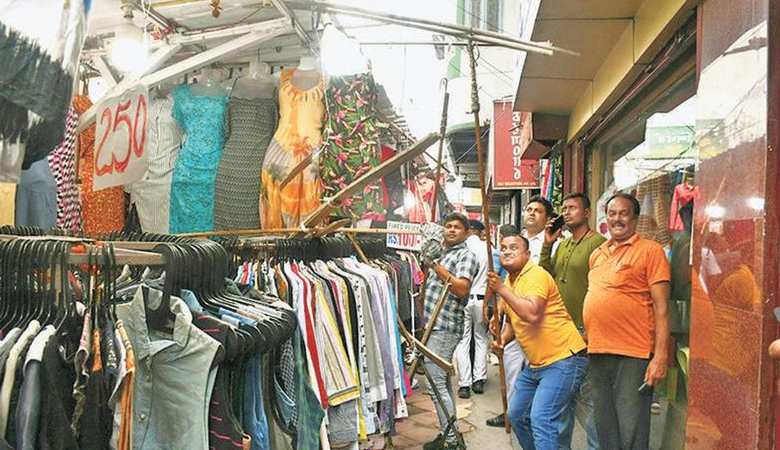West Bengal Eviction Drive Leaves Hawkers Struggling: Lack of Compensation and Rehabilitation Criticized

News Mania Desk/Agnibeena Ghosh/27th July 2024
A recent survey across municipalities and civic bodies in West Bengal has revealed that the recent eviction drive against hawkers and vendors did not adhere to laws passed by the Assembly, nor did it attempt to provide compensation or rehabilitation. Last month, police and civic bodies initiated the eviction process after Chief Minister Mamata Banerjee highlighted that hawkers were occupying streets, leaving no space for pedestrians. The report titled ‘Bulldozers vs. Livelihoods: Unmasking the Plight of West Bengal’s Street Vendors’ emphasized the hardships faced by the evicted vendors, who were forced to leave their vending locations without any support.
Several organizations, including the Right to Food and Work Campaign, People’s Union for Civil Liberties, Amra Ek Sachetan Prayas, and workers unions in unorganized sectors, released the fact-finding report on Friday. The report detailed the use of bulldozers and earth movers during evictions in towns such as Rampurhat, Bolpur, Burdwan, Durgapur, and English Bazar, among others. This marked the first significant deployment of bulldozers against street vendors in West Bengal.
Despite Chief Minister Banerjee’s announcement to pause the evictions for a month after June 26, the ‘Bulldozer Rule’ continued, supported by the ruling party. Subha Protim Roy Chowdhury, involved in the survey, reported that the team interacted with hawkers across 12 municipalities, who shared their traumatic experiences. Many evicted hawkers and their families faced sleepless nights due to the sudden loss of their livelihood.
In Durgapur, hawkers claimed that the evicted land was allocated to influential individuals linked to the ruling party for parking purposes. In Rampurhat, there were allegations that any future hawker market construction would prioritize loyalist hawkers, followed by demands for significant sums of money for shop allocation.
Swapan Ganguly of Paschim Banga Khet Majoor Samity, one of the survey’s backing organizations, stated that every eviction violated the Street Vendors (Protection of Livelihood and Regulation of Street Vending) Act, 2014. This Act empowers town vending committees to manage hawkers, but such committees are non-functional in many parts of the State. Advocate Purbayan Chakraborty, also associated with the survey, expressed surprise at the timing of the eviction drive, suggesting it might be politically motivated following the Lok Sabha polls.
The survey underscored the need for municipalities to take responsibility for the management of hawkers and ensure the proper implementation of the Street Vendors Act. The failure to follow the Act has left hawkers vulnerable and without recourse, causing significant disruption to their lives and livelihoods.
The eviction drive in West Bengal has sparked a broader discussion on the treatment of street vendors and the need for a humane approach that respects legal frameworks and the rights of individuals. As the affected hawkers and their families continue to struggle, the call for adherence to laws and the provision of adequate compensation and rehabilitation becomes more urgent. This incident highlights the importance of balancing urban development with the protection of livelihoods, ensuring that progress does not come at the cost of vulnerable communities.






